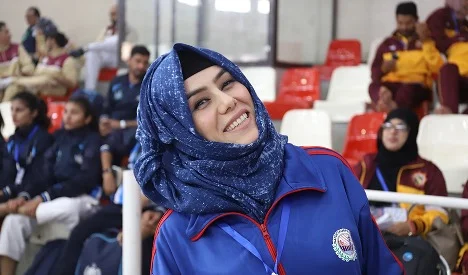Kulsoom Hazara was a storm wrapped in silence, graceful as the wind, yet with the power to break mountains. Kulsoom Hazara was born in Quetta on September 4, 1988. Her life’s journey was marked by profound tragedy, unimaginable loss, and an unyielding will to overcome it. At the tender age of two, she lost her mother to cancer, and by the age of nine, her father to a heart attack.
She was raised by her elder sister and brother-in-law, Sarwar Ali, who became her first karate coach and mentor. But the crucible of her life was still being formed. In 2005, amid rising sectarian violence against the Hazara community, Ali was murdered. The family of Kulsoom, having already relocated to Karachi in 2000, was left to grieve once more, but Kulsoom’s resolve only hardened.
A Blade Forged in Fire
Imagine her as a blade forged in fire, sharp, resilient, and unbreakable, yet shining with elegance. She began her training at five, and by the year 2000, she had won three gold medals at the Sindh Games. Her first national gold came in Islamabad in 2005, a moment that set the stage for a period of dominance. From 2007 to 2019, she was the undisputed champion, often winning multiple gold medals annually. She remains the only Pakistani female karateka to secure hat-tricks of three golds in four consecutive national championships. For Kalsoom, every kata was a poem, and every strike a verse in the language of discipline, a silent, powerful testament to her journey.
International Mountains Conquered
Her international career was a series of mountains conquered. In 2005, she represented Pakistan for the first time at the 4th Islamic Women’s Games in Tehran, finishing fifth. At the 2010 South Asian Games in Dhaka, she earned two bronze medals. She followed this with gold and silver at the South Asian Karate Championships in New Delhi (2016) and Colombo (2017). Her crowning moment came at the 2019 South Asian Games in Kathmandu. Despite a pre-existing injury, she captured a gold medal in the team kumite and a silver in the 68 kg individual event, cementing her legacy as Pakistan’s most decorated female karateka.
A Phoenix Rises
Off the mat, Kulsoom Hazara faced battles that were just as daunting. As a Hazara woman in a conservative society, she carried both the strength of iron and the gentleness of water. She defied cultural resistance, training and traveling over 50 kilometers across a gang-ridden Karachi to practice. She transformed personal loss and marginalization into a story of empowerment, becoming a role model for countless young women. While government recognition was limited, the Pakistan Army honored her with the “Icon of the Nation” and “Excellence in Sports ” awards in 2017, a recognition that underscored her resilience and national significance. She also became a recipient of federal sports scholarships, which enabled her to continue competing internationally despite scarce resources.
Her story is a journey from the depths of grief to the pinnacle of gold. After a 22-year career, she announced her retirement in 2023. Yet even in retirement, her mission continues. Armed with a Master’s degree in Health and Physical Education, she now envisions establishing training academies to empower the next generation of athletes, especially girls who face the same societal barriers she once faced. Kulsoom Hazara is a phoenix, a testament that every defeat only teaches you to rise fiercer, faster, and stronger. Her legacy is a reminder that courage and determination can transcend all barriers, making her not just a decorated athlete but a national icon and enduring role model whose story will inspire for generations.
Also Read: From Quetta to the World Stage: The Journey of Abrar Hussain

